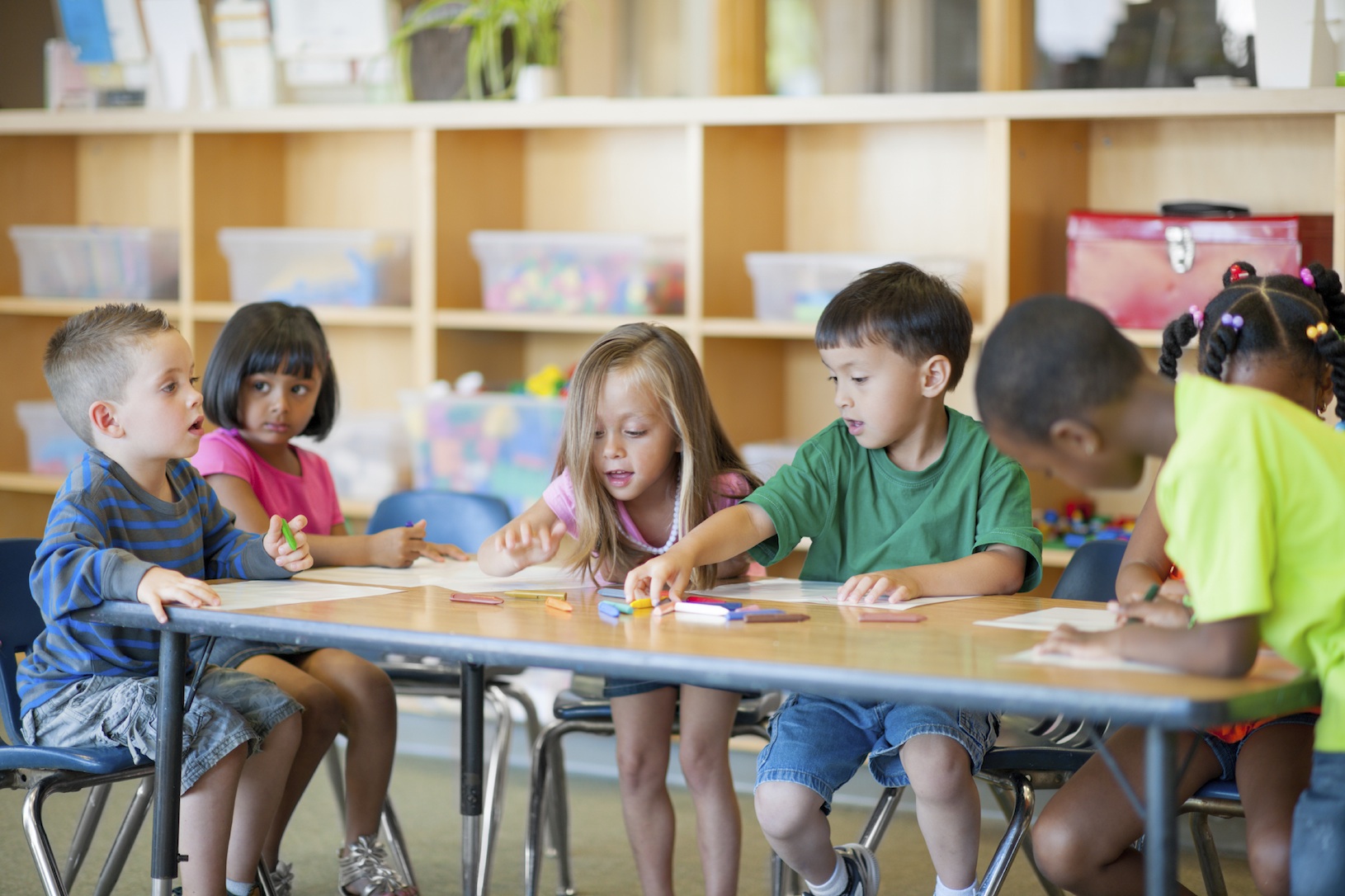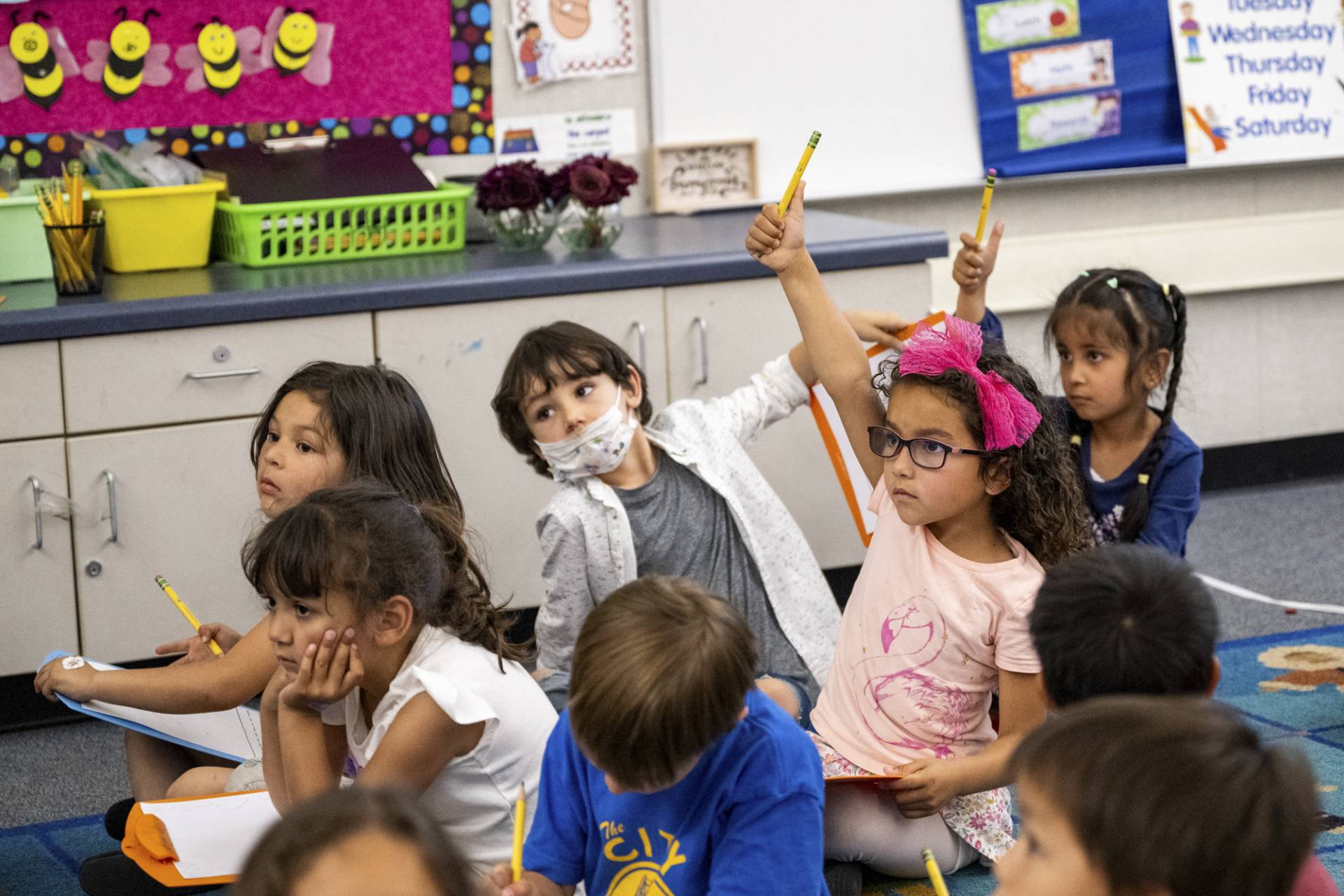Creative writing programs that spark imagination in Grade School students
Grade College: A Comprehensive Overview to Programs That Foster Understanding and Growth
Elementary school plays a crucial role in forming a kid's future. It combines vital learning with social-emotional growth. Different programs and strategies are utilized to cater to diverse demands. The combination of technology and after-school activities enhances the educational experience. Recognizing these aspects is essential for fostering development. What specific methods can colleges execute to guarantee every kid grows in this foundational phase?
Recognizing the Significance of Early Education And Learning
While numerous recognize the relevance of education at any kind of stage, comprehending the importance of very early education is basic for setting a solid foundation for lifelong learning. Study suggests that very early childhood experiences exceptionally influence social and cognitive growth. Throughout these formative years, youngsters are especially receptive to finding out, making it important to give stimulating and nurturing atmospheres. Quality very early education programs cultivate essential skills such as communication, problem-solving, and emotional policy.
Additionally, very early education and learning can link voids in socio-economic variations, ensuring all kids have accessibility to the resources needed for success. By highlighting play-based learning and interactive tasks, very early education and learning grows interest and a love for knowing. Furthermore, it supports the advancement of important thinking abilities that are critical in later academic pursuits. Inevitably, purchasing early education returns substantial lasting advantages, forming people that are much better outfitted for the obstacles of an increasingly complex world.
Conventional Curricula: A Tried And True Technique
Standard curricula have long prioritized core subjects, providing students with essential understanding in areas such as science, language, and math arts. This structured discovering environment cultivates self-control and uniformity, allowing pupils to concentrate on foundational skills. In addition, teacher-led guideline plays a vital role in directing students with the educational program, making certain that learning goals are satisfied successfully.

Core Subjects Focus
Although several educational ideologies have actually emerged throughout the years, the focus on core topics within typical educational program remains a foundation of quality school education. These core topics typically consist of mathematics, analysis, composing, scientific research, and social researches, forming the foundational expertise necessary for student development. By concentrating on these self-controls, typical curricula goal to gear up trainees with crucial believing abilities and a well-rounded understanding of the world. This structured technique cultivates essential literacy and numeracy skills, enabling trainees to engage meaningfully with more complicated principles later on in their education. Additionally, the proficiency of core topics is typically viewed as a crucial indicator of scholastic success, further solidifying their importance in elementary school discovering environments, and guaranteeing a regular instructional baseline throughout varied populaces.
Structured Understanding Environment
An organized knowing setting is crucial for promoting scholastic growth in grade school settings, as it provides a regular structure within which trainees can prosper. Typical educational programs often emphasize clear expectations, routines, and routines, allowing pupils to establish a sense of protection and concentrate on their learning. This predictability helps decrease disturbances and advertises technique, making it possible for trainees to engage much more effectively with scholastic web content. Furthermore, a structured environment promotes the steady introduction of intricate concepts, making certain that foundational abilities are mastered prior to progressing. Such a technique not just supports cognitive growth but additionally supports social skills, as trainees discover to navigate their duties within a defined system. Eventually, an organized learning atmosphere prepares for long-lasting understanding routines.
Teacher-Led Guideline
Teacher-led guideline stays a keystone of traditional curricula, providing a straight and reliable methods of delivering academic material. This approach stresses the educator's role as an authority figure and facilitator of understanding, assisting trainees via structured lessons and evaluations. With a focus on straight guideline, instructors can make clear intricate ideas, guaranteeing that trainees grasp foundational abilities essential for future understanding. This method commonly includes the use of books, lectures, and explicit teaching methods, which have been shown to produce measurable academic outcomes. Furthermore, teacher-led instruction cultivates a regimented understanding environment, permitting consistent surveillance of pupil progress. Despite the appearance of alternative academic methods, the effectiveness of teacher-led instruction remains to be validated by its enduring existence in academic settings.

Cutting-edge Technology-Driven Learning Programs
Numerous quality colleges are welcoming innovative technology-driven discovering programs to boost instructional results and engage trainees in significant methods. These programs utilize devices such as interactive software, digital fact, and adaptive discovering systems, allowing individualized discovering experiences customized to private trainee needs. By integrating modern technology right into the educational program, teachers can promote collaboration and critical thinking abilities among students.
Coding and robotics courses urge analytical and creativity, while on the internet resources offer access to a huge array of info. Additionally, gamified discovering applications make complex subjects more approachable, motivating pupils to participate actively in their education.
Teachers also benefit from technology-driven programs with information analytics, which enable real-time analyses of student efficiency. This enables them to adjust their mentor methods promptly. On the whole, these cutting-edge programs are transforming standard instructional strategies, preparing students for a future where electronic proficiency is crucial.
After-school Activities for Holistic Advancement
Incorporating modern technology into the academic landscape has opened brand-new avenues for pupil interaction, yet holistic development expands past the classroom. After-school activities play a crucial duty in promoting well-rounded development among elementary school trainees. These tasks, varying from sporting activities and arts to clubs and volunteering, offer possibilities for kids to discover their rate of interests and create important life skills.

Engagement in this link sporting activities urges teamwork, technique, and physical conditioning, while creative searches promote imagination and self-expression. Academic clubs promote important reasoning and partnership, permitting pupils to use class knowledge in real-world contexts. Offering instills a feeling of area and social responsibility, enriching trainees' understanding of varied point of views.
Social-Emotional Knowing: Building Resilience and Compassion
While scholastic accomplishment is vital, social-emotional understanding (SEL) plays a vital duty in nurturing strength and empathy in quality institution trainees. SEL programs aim to create essential skills such as self-awareness, psychological guideline, and social interaction, which are important for trainees' general wellness. By taking part in tasks that advertise understanding of feelings and social characteristics, trainees discover to browse challenges and construct healthy relationships.
Integrating SEL into the curriculum promotes an encouraging atmosphere where youngsters can share their feelings and find out to empathize with others. This technique not just boosts psychological intelligence yet additionally helps students deal with troubles, promoting resilience. Research suggests that pupils that take part in SEL initiatives demonstrate improved behavior, scholastic performance, and positive peer interactions. Incorporating social-emotional understanding into quality institution programs is necessary for furnishing trainees with the skills required for individual and academic success, eventually forming compassionate and resilient individuals.
Unique Education And Learning Programs: Sustaining Diverse Learners
Unique education and learning programs play a necessary role in sustaining diverse students within grade institution settings. Via customized education plans (IEPs) and comprehensive class approaches, these programs intend to meet the special demands of each pupil. Reliable execution fosters a setting where all kids can flourish academically and socially.
Individualized Education Plans
Embellished Education And Learning Plans (IEPs) work as essential tools in the area of unique education, designed to sustain diverse students with one-of-a-kind demands. These lawfully binding records outline particular academic goals, accommodations, and solutions tailored to each student. Created collaboratively by specialists, parents, and teachers, IEPs guarantee that students with disabilities have accessibility to a free proper public education (FAPE) This personalized strategy advertises purposeful development by addressing individual toughness and difficulties. Routine assessments and updates to the IEP facilitate recurring changes, ensuring that educational approaches stay efficient. Eventually, IEPs empower trainees by cultivating a comprehensive knowing setting that identifies and values their originality, enabling them to prosper academically and socially.
Inclusive Class Methods
Developing an inclusive class setting is necessary for successfully supporting diverse learners, as it cultivates collaboration and interaction among students of varying capacities (Kindergarten). Comprehensive class techniques include distinguished instruction, where educators adapt lessons to satisfy individual needs. This might consist of varied teaching approaches, such as aesthetic help, hands-on tasks, and modern technology integration. Furthermore, promoting peer assistance with participating understanding groups encourages trainees to help one an additional, boosting social skills and empathy. Making use of universal design concepts ensures that all products and assessments come. Teachers ought to also carry out clear expectations and constant regimens to develop click to investigate a foreseeable environment. By prioritizing inclusivity, teachers can cultivate a positive atmosphere that values diversity and empowers every pupil to prosper academically and socially
Parental Involvement: Enhancing the Educational Experience
While several factors add to a youngster's instructional success, parental involvement attracts attention as a vital aspect in improving the overall discovering experience. Study shows that youngsters whose parents actively participate in their education and learning have a tendency to perform much better academically and display improved behavior in college. This participation can take different types, including going to parent-teacher meetings, volunteering in class, or supporting homework routines.
Reliable communication between instructors and moms and dads fosters a collective atmosphere that benefits trainees. When parents and educators interact, they can identify and attend to obstacles a lot more promptly and properly. In addition, parental support urges kids to value education, instilling a development way of thinking that advertises long-lasting knowing.
Regularly Asked Inquiries
How Can I Select the Right Quality Institution for My Youngster?
To choose the right quality college, moms and dads should examine scholastic efficiency, extracurricular offerings, teacher certifications, college society, and area. Seeking and seeing institutions comments from other parents can even more assist in making an informed choice.
What Are the Prices Connected With Quality Institution Programs?
The expenses connected with grade school programs differ extensively, including tuition costs, materials, extracurricular tasks, and transport. Family members should also think about additional costs such as attires and potential fundraising contributions for improved instructional experiences.
How Do Grade Schools Assess Trainee Progress and Performance?
Quality colleges assess pupil development and performance via a mix of standardized examinations, educator analyses, classroom engagement, and project-based assignments. Grade School. These methods offer insights right into specific learning, skill development, and overall academic achievement
Are There Options for Homeschooling Within Typical Elementary School Frameworks?
Yes, many conventional grade institutions offer choices for homeschooling via crossbreed programs, permitting students to learn at home while taking part in choose college tasks or courses, offering flexibility and personalized education within a structured framework.
What Is the Function of Educators in Fostering Pupil Creativity?
Educators play a vital function in cultivating pupil creative thinking by motivating exploration, supplying varied materials, and developing a secure setting for expression. Their advice motivates trainees to believe seriously and create cutting-edge ideas through joint learning experiences.
A structured discovering environment is crucial for fostering scholastic growth in quality college setups, as it offers a regular framework within which students can thrive. With a focus on straight instruction, instructors can make clear complex principles, guaranteeing that pupils grasp fundamental skills important have a peek at this website for future knowing. In addition, teacher-led instruction fosters a self-displined learning atmosphere, allowing for constant surveillance of pupil progress. Countless quality colleges are embracing cutting-edge technology-driven understanding programs to enhance instructional outcomes and involve students in meaningful means. While academic success is important, social-emotional understanding (SEL) plays an important function in supporting durability and compassion in grade college trainees.